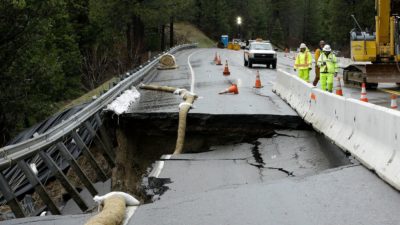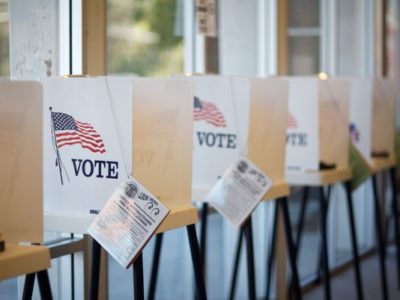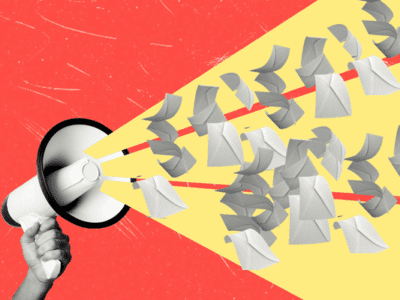California’s Proposition 6: Bad Policy & Nefarious Politics
Proposed Repeal of California’s Landmark “Gas Tax” Legislation Would Be Disastrous for State
Politicians don’t like to focus on infrastructure maintenance. It’s not sexy, doesn’t command media headlines, and captures little public attention. But maintaining a functioning, safe public infrastructure system is vital to ensuring a strong economy, protecting public safety and promoting long-term environmental goals.
That’s why Proposition 6, a measure on California’s November 6th general election ballot, is so important. And why it’s nevertheless failed to attract the degree of public and media attention it deserves.
To understand the issue and accompanying policy debate, some background is required.
In the 1950’s and `60’s, California’s transportation system of roads, highways, bridges and tunnels was among the best in the United States and, indeed, the world. A half century later, California’s transportation infrastructure has been allowed to deteriorate steadily, to the point where it is now one of the worst for the nation. (Why? Refer back to the first sentence in this post.) Recent reports reveal that California has 1600 bridges and overpasses that have been rated structurally unsafe, and that 52 of the state’s 58 counties have roads that are in “poor” or “at-risk” condition. Overall, it is estimated that California has a backlog of necessary transportation infrastructure repairs of between $60-72 billion.

In 2017, California Governor Jerry Brown and the California Legislature took action that was long overdue but nevertheless most welcome: with strong support from Governor Brown, the Legislature passed SB 1, a measure that devotes approximately $5.2 billion annually for the principal purpose of making critically-needed repairs to California’s existing roads, highways, bridges and related transportation infrastructure. Of that amount, $1.9 billion each year is allocated to repairs to the state’s highway system; and $1.8 billion to fixing unsafe and potholed local streets and roads. Mass transit systems are also addressed in SB 1: the legislation allocates $750 million annually to commuter and intercity public transportation projects throughout California.
The political controversy–and the origins of Proposition 6–relate to how this critical transportation infrastructure repair program is to be funded. Specifically, SB 1 raises significantly the per-gallon sales and excise taxes on both gasoline and diesel fuel sold to motorists, and also imposes a sliding-scale “transportation improvement fee” (i.e., an increase in the annual vehicle registration fee) on private vehicles (ranging between $25-175 annually, based on the value of a particular vehicle). Those taxes and fees are projected to generate the funds necessary to finance the transportation repair and related projects that are newly-authorized under SB 1. (Critically, the California Constitution prevents legislators from “raiding” these transportation funds for non-transportation-related purposes.)
SB 1 passed with virtually unanimous support from Democrats who dominate the California Legislature, and with almost no support from Republican legislators. But California’s Republican party did not go quietly into that political good night. Instead, aligned with anti-tax organizations, they launched a successful signature-gathering effort that placed Proposition 6 on the ballot. That measure–unlike the other 10 propositions appearing on California’s November 6th general election ballot–is a referendum, in which state voters are asked to do two things: 1) repeal SB 1; and 2) require that any future increases in fuel or vehicle taxes passed by the Legislature not take effect until and unless state voters also approve those increases.
Critically, Republican proponents don’t contend that California’s transportation infrastructure is just fine in its current condition. Publicly, they simply claim that state motorists can’t afford to pay for the needed infrastructure repairs–ignoring the questions of whether, when or how those repairs should occur.
But there’s another motivation behind the California Republican Party’s efforts to repeal SB 1: to energize the Republican base and, specifically, to motivate Republicans and other anti-tax voters to go to the polls on November 6th, where they can be expected to vote for Republican candidates for state and federal office. (Indeed, California Republican gubernatorial candidate John Cox has authored the formal argument in support of Proposition 6 that appears in the Official Voter Information Guide sent to all registered voters in California.) Stated differently, Proposition 6 is more important to its Republican backers as a campaign tool to secure votes for its candidates than the referendum is on its merits.
So why should environmentalists care about the fate of Proposition 6?
For several reasons, actually. First, SB 1 provides that a significant portion of the revenue raised by the tax and fee increases will go to fund desperately needed mass transit projects that will incentivize Californians to abandon their private vehicles for more environmentally-friendly transportation options.
Second, a crumbling, hazardous transportation infrastructure system benefits no one. To the contrary, zero-emission vehicles, self-driving cars and shared ownership vehicles all require safe, well-maintained roads, highways, bridges, etc. (Making sure that the vehicles of California’s transportation future pay their fair share of the road and highway system upon which they travel–is both critically important and eminently fair, but that’s another post for another day.) So too does an increasingly green California economy–led by high tech, tourism, entertainment and agriculture–depend on a functioning, viable transportation system.
Given these facts, it should be no surprise that the opponents of Proposition 6–i.e., those who wish SB 1’s infrastructure funding mechanism to remain in place–represent a broad political coalition. That coalition encompasses first responders including law enforcement, firefighters and paramedics; the California Chamber of Commerce; the California Transit Association; and major state environmental organizations such as Sierra Club California, the Natural Resources Defense Council, the California League of Conservation Voters and the Planning and Conservation League. On their campaign website, the environmental organizations opposing Proposition 6 argue that:
“Prop 6 robs our communities of vital transportation and public transit improvement funds…Prop 6 will make air quality worse and harm the environment.”
As election day approaches, available polling suggests that the fate of Proposition 6–and, with it, SB 1–is uncertain. Of course, no one likes paying higher taxes. But I submit that the long-term cost of not addressing California’s festering transportation infrastructure crisis is considerably higher. Simply “kicking the can” of the state’s crumbling transportation infrastructure crisis farther down the road is simply not a viable option. California voters will hopefully reject the political machinations of the California Republican Party and the reflexive opposition of anti-tax activists in favor of a safer, more reliable, and greener state transportation system.
No on Proposition 6.

Reader Comments
2 Replies to “California’s Proposition 6: Bad Policy & Nefarious Politics”
Comments are closed.







For the record, I didn’t think Prop. 6 should even be on the ballot. See my letter at http://www.latimes.com/opinion/readersreact/la-ol-le-gas-tax-prop-6-signs-20180803-story.html.
Also for the record, Prop. 6 could not be a referendum because the referendum power to reject a new laws does not extend to urgency statutes, and SB1 was an urgency statute. Prop. 6 was an unconstitutional attempt to get around that limitation. Which was another reason (not mentioned in my letter) it shouldn’t have been on the ballot.
[California Constitution, Article II, Sec. 9(a)]